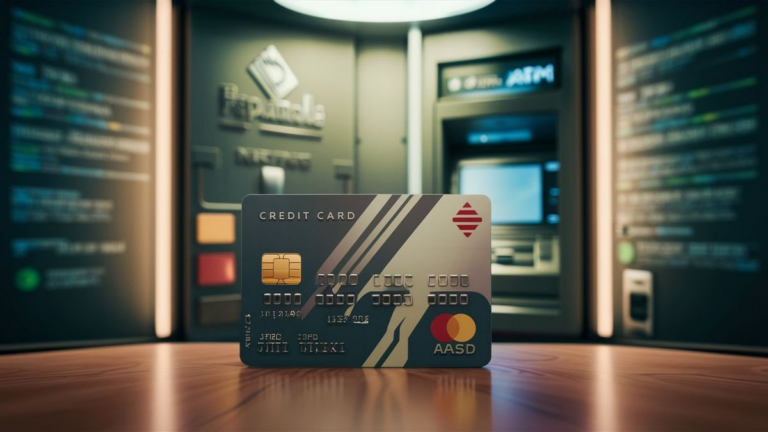When it comes to finding the best credit card for cash advance, it’s essential to consider various factors that can affect your financial well-being. A cash advance allows you to borrow cash against your credit card’s available balance, but it typically comes with higher fees and interest rates compared to regular purchases. Therefore, choosing the right credit card for cash advances can save you money and provide flexibility in times of need.
Understanding Cash Advance Fees and Interest Rates
Before delving into the best credit cards for cash advances, it’s crucial to understand the associated fees and interest rates. Cash advance fees are typically charged as a percentage of the amount withdrawn, ranging from 3% to 5% of the transaction. Additionally, interest rates on cash advances are higher than those for purchases, often starting immediately without a grace period.
Factors to Consider
When evaluating credit cards for cash advances, several factors should be taken into account:
- Interest rates
- Cash advance fees
- ATM access and availability
- Repayment terms
- Rewards and benefits
Interest Rates
The interest rate for cash advances varies among credit cards and can significantly impact the overall cost of borrowing. Look for cards that offer lower APRs on cash advances to minimize expenses.
Cash Advance Fees
While cash advance fees are typically unavoidable, some credit cards may offer lower fees or promotional periods with reduced charges. Consider cards with competitive fee structures to save money on cash advances.
ATM Access and Availability
Easy access to ATMs is essential when considering a credit card for cash advances. Choose a card that offers widespread ATM access and ensures the availability of cash when needed.
Repayment Terms
Understanding the repayment terms for cash advances is crucial to avoid unnecessary fees and interest charges. Look for cards that offer flexible repayment options and clear terms and conditions.
Rewards and Benefits
While cash advances should be used sparingly and for emergencies, it’s still beneficial to consider any rewards or benefits offered by the credit card issuer. Some cards may offer cashback or rewards points even on cash advance transactions.
Best Credit Cards for Cash Advance
After considering the essential factors, several credit cards stand out as top choices for cash advances:
| Credit Card | Interest Rate | Cash Advance Fee | ATM Access | Rewards/Benefits |
|---|---|---|---|---|
| Example Card 1 | 15.99% – 24.99% APR | 3% of the transaction | Wide network of ATMs | 1.5% cashback on cash advances |
| Example Card 2 | 12.99% – 21.99% APR | 2.5% of the transaction | Nationwide ATM access | 2x rewards points on cash advances |
| Example Card 3 | 10.99% – 18.99% APR | 2% of the transaction | Global ATM network | $100 cash bonus for first cash advance |
These examples highlight the variety of credit cards available for cash advances, each offering unique benefits and features. However, it’s essential to compare and review the terms and conditions of each card to determine which aligns best with your financial needs and goals.
Choosing the best credit card for cash advances requires careful consideration of interest rates, fees, ATM access, and rewards. By understanding these factors and comparing various card options, you can make an informed decision that helps you effectively manage your finances and navigate unexpected expenses.
Managing Cash Advance Debt
Once you’ve obtained a cash advance, it’s crucial to manage the resulting debt responsibly. Here are some tips:
- Create a repayment plan: Develop a strategy to pay off the cash advance as quickly as possible to minimize interest charges.
- Avoid using cash advances for non-essential expenses: Reserve cash advances for emergencies only to prevent accumulating unnecessary debt.
- Monitor your credit card balance: Keep track of your credit card balance, including cash advance amounts, to avoid exceeding your credit limit.
- Seek financial assistance if needed: If you’re struggling to repay a cash advance, consider reaching out to a financial advisor or counselor for guidance.
Frequently Asked Questions
1. Can I avoid cash advance fees?
While cash advance fees are typically standard, some credit cards may offer promotional periods with reduced or waived fees. However, it’s essential to read the terms and conditions carefully.
2. Are there alternatives to cash advances?
Yes, there are alternatives to cash advances, such as personal loans or borrowing from a savings account, which may offer lower interest rates and fees.
3. How does a cash advance affect my credit score?
Obtaining a cash advance may not directly impact your credit score, but it could indirectly affect it if it increases your credit utilization ratio or leads to missed payments.
4. Can I negotiate cash advance terms with my credit card issuer?
It’s possible to negotiate with your credit card issuer for better terms on cash advances, especially if you have a good payment history. However, results may vary depending on the issuer’s policies.
See also:






